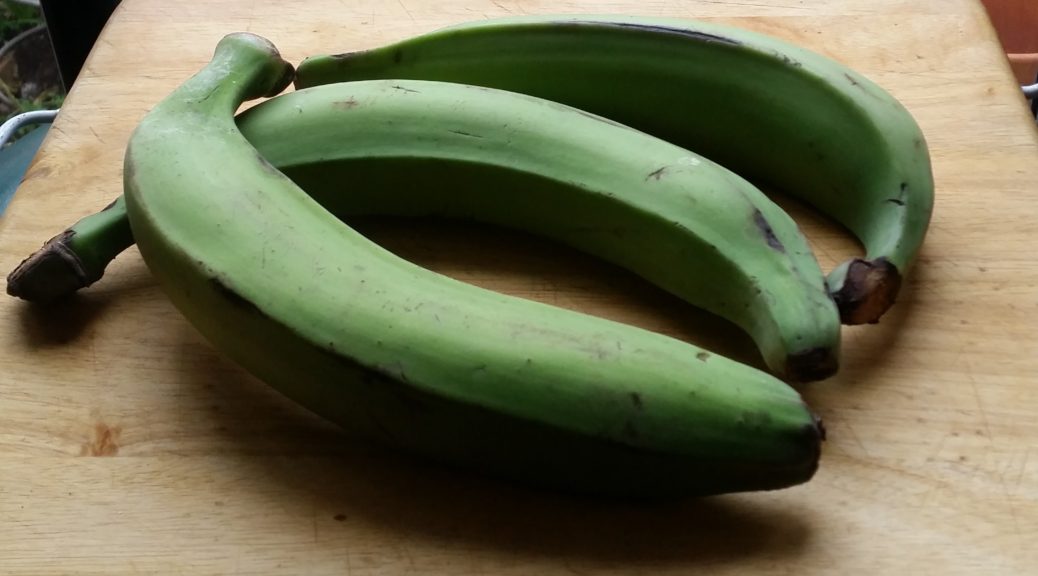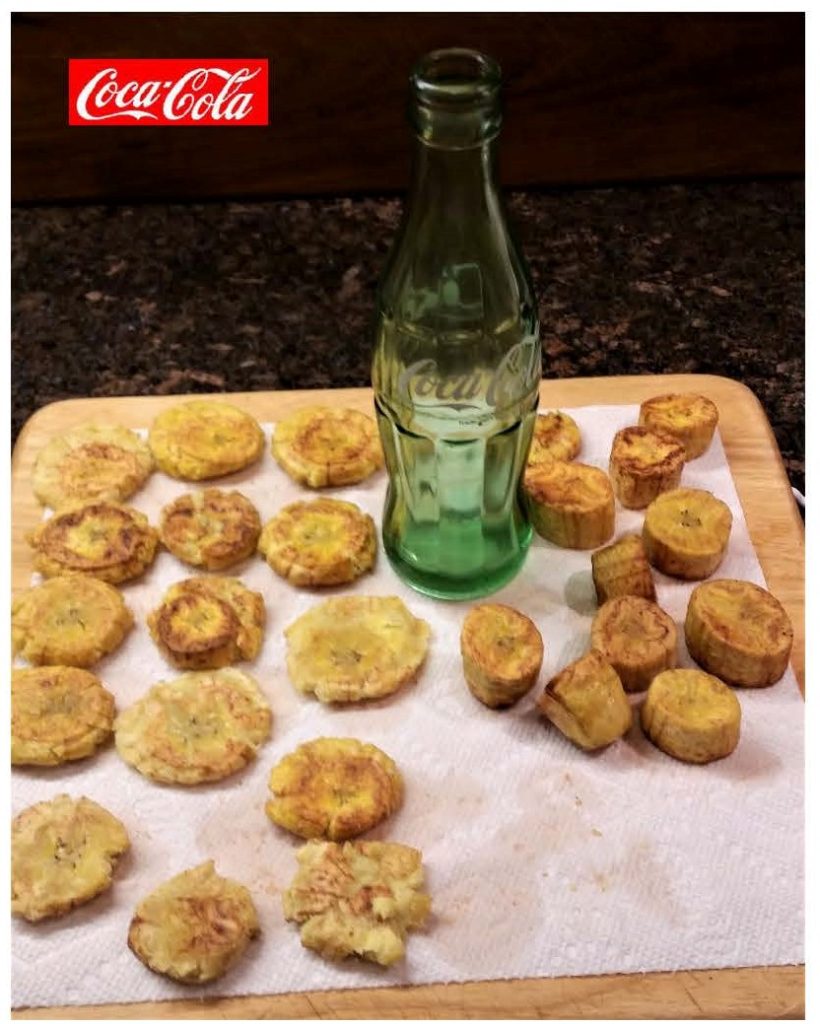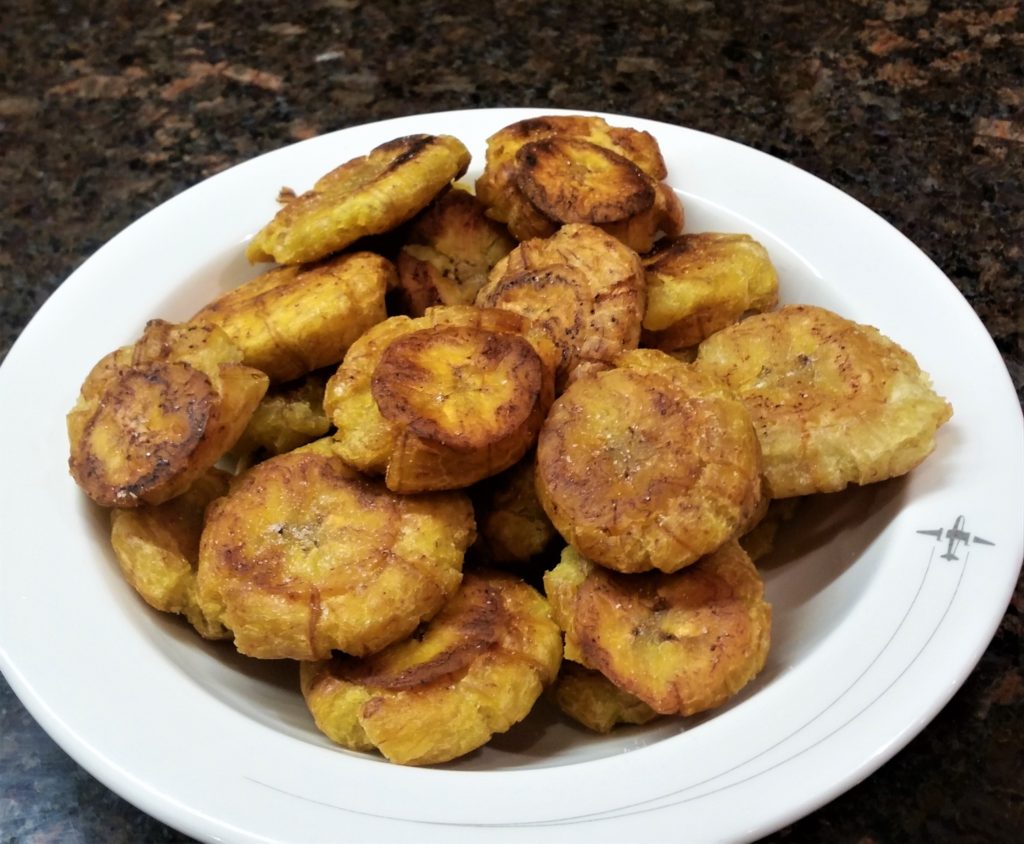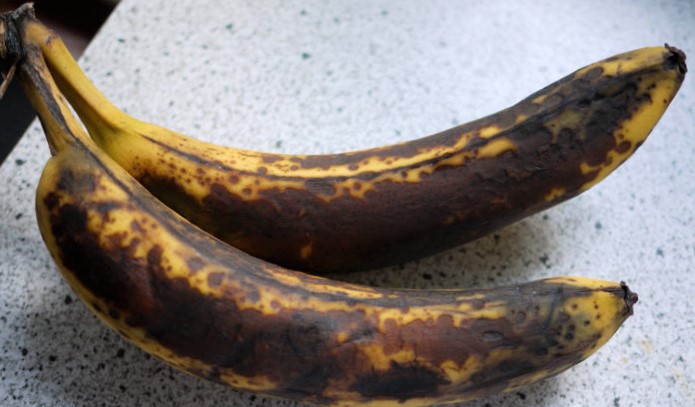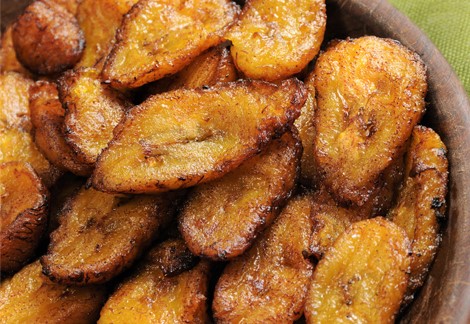Platanos
2 preparation techniques – tostones with green unripened platonos and meduros for yellow/black ripe ones.
Tostones
Tostones can be served along side meat like potatoes or as a snack like potato chips. They’re made from an unripe platano (plantain). That’s a type of a very hard and starchy green banana.
I learned to make them while hanging out with a Puerto Rican friend in his sister Evelyn’s kitchen. You start by cutting off the two ends and making shallow knife slits in the skin along the length of the platano. The skin is thick and hard and not easy to peal like a regular banana.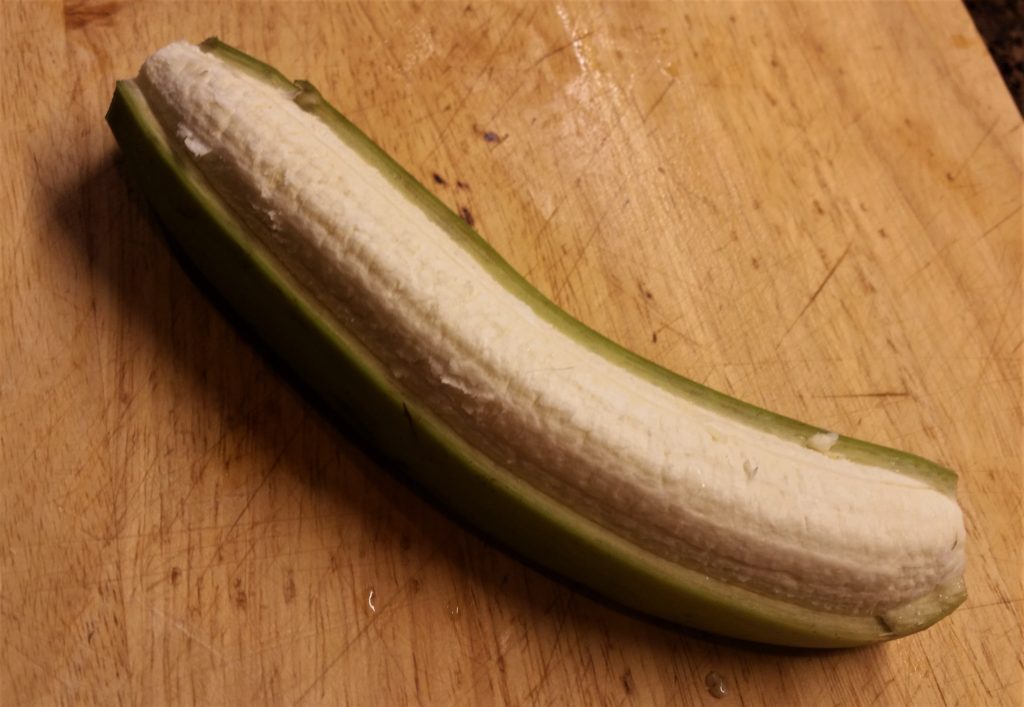
After they’re peeled, cut them into ¾ inch rounds and fry them in light oil like Wesson or Canola. Lightly brown them on both sides and remove them to drain on a paper towel. After they cool a bit, flatten them and fry them again until the edges get crisp.  tostonera
tostonera
Some people use a tostonera but whacking them with the bottom of a Coke bottle works just as well for this step. I thought it interesting that Evelyn used a Coke bottle to flatten her tostones and my mother used one to squash olives so she could remove the pits – a cross-cultural improvised kitchen utensil.
After the second frying, sprinkle them with salt and serve hot or room temperature.
Meduros
Meduros are made in a similar way but don’t need to be flattened and fried twice. A meduro is a ripened platano. You should buy the ones that are almost black. As they ripen the starch turns to sugar so a meduro is sweet instead of savory like a tostone.
Peel them the same way and cut them into one-inch slices on a bias (diagonally). Fry them on a high heat to brown them, then lower the heat and cook until they soften. They may be sweet but they’re also served along side meat.
Writing Site and Yelp

